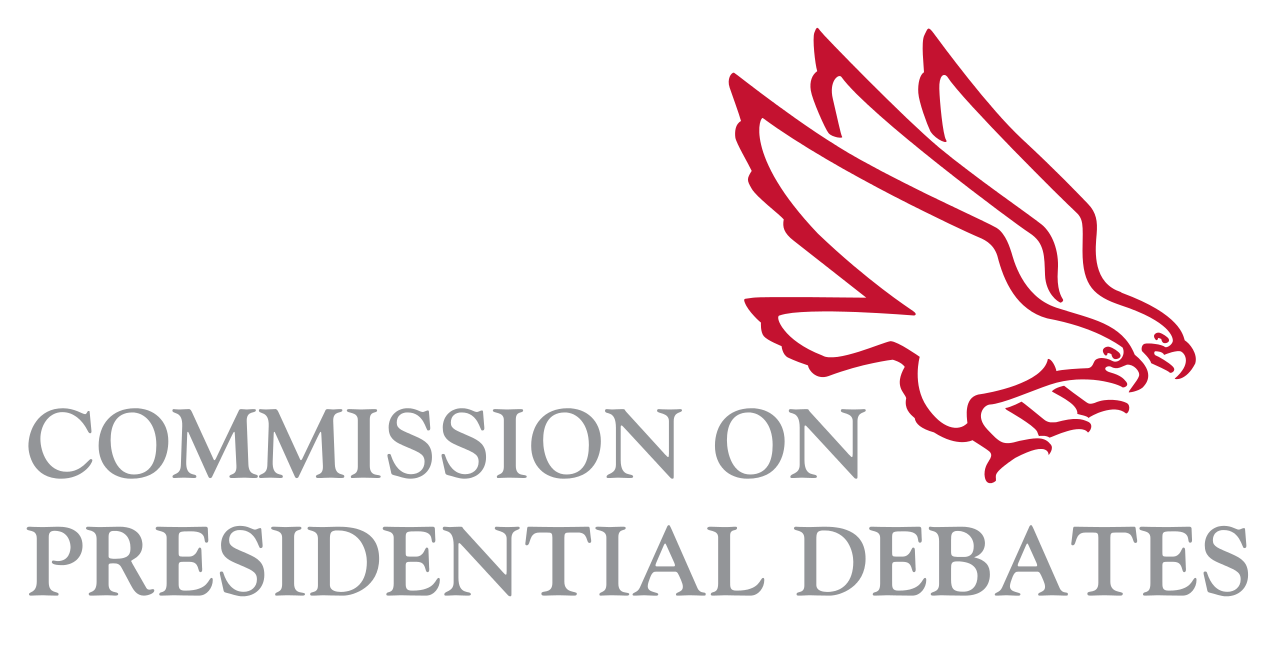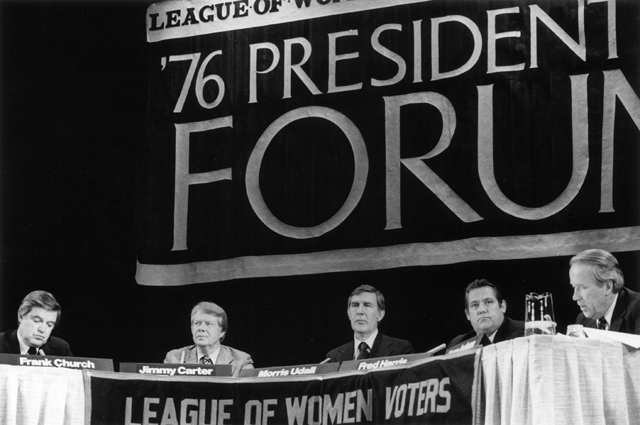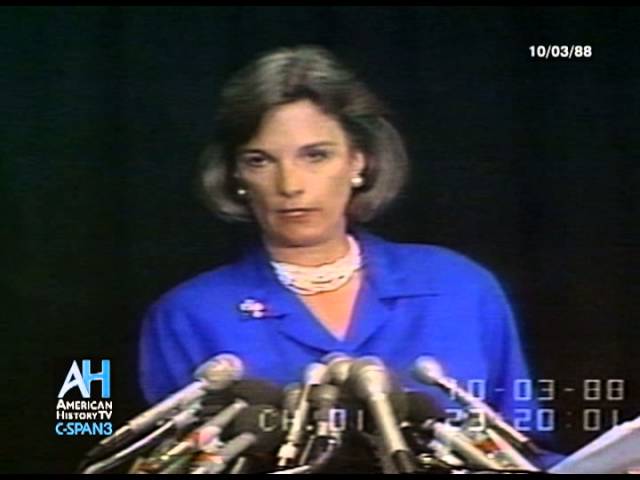
The Commission on Presidential Debates
The Commission on Presidential Debates has taken the lead in organizing presidential debates since 1988. Bi-partisan support for the CPD has ensured stability to the presidential debates, which is a stark contrast to the flawed League of Women Voter sponsored debates in 1976, 1980, and 1984. After the commission began organizing presidential debates, they were given much critcism for being a "corrupt duopoly." Ultimately, the commission seeks to do what the League of Women Voters could not do, which is, ensure stability for future presidential debates, and improve the organization of said debates. For the past five election cycles, presidential candidates of the Republican and Democratic Parties have taken the stage to debate. Nonetheless, the commission continues to recieve a serious amount of criticism for essentially being a tool of the two major parties. These claims and more will be addressed below.
League of Women Voters Sponsored Debates

After the highly successful presidential debates in 1960, the American public seemed to think these debates would become the norm for campaign season. However, presidential candidates would not again debate until 1976, when both candidates needed the publicity. In order to make the debates possible, the League of Women voters sponsored them. They were considered a "news event" since television networks were not sponsoring them. This effectively bypassed §315 of the Federal Communications Act, also known as the Equal Time Provision. The presidential debate in 1976 was a success, because both candidates thought that the debates would help their chances. With the campaigns agreement on moderators, lighting, location, etc the debates were a possibility.
This proved to be much more difficult in the subsequent debates, when it took 103 journalists to find three that both campaigns could agree on.1 Something became clear after the presidential debate in 1984, the political parties needed to be more involved and a new organization would be needed to ensure stability in future presidential debates. Originally, the presidential debates in 1988 were supposed to be shared with both the League of Women Voters and the newly created Commission on Presidential Debates. Some negotiations took place, but the President of the League of Women Voters, Nancy Neuman, demanded that the campaigns choose which organization would be the sole sponsor of the presidential debates. They urged the campaigns to participate in debates with their sponsorship. In an Op-Ed from the NYT, Parties Can't Run Presidential Debates, Chester Lenore issued a powerful statement, "grass-roots participation of individuals in the political process should not be given up lightly."2 He declared that the League of Women Voters should remain the primary sponsor of the presidential debates.
New Era of Presdential Debates
Ultimately, the presidential debates in 1988 would be sponsored by the newly created commission. The League of Women Voters effectively withdrew their sponsorship of the presidential debates that year. The newly created Commission on Presidential Debates would be the sole sponsor of the presidential debates. It seemed that a new era of presidential debates had begun and that they would be a bi-partisan affair.
Nancy Neuman offered these words in response to the commission gaining full control of the debates: “It has become clear to us that the candidates organizations’ aim to add debate to their list of campaign-trail charades devoid of substance, spontaneity, and hard answers to tough questions. The league has no intention of becoming an accessory to the hoodwinking of the American Public."3

Click here to watch her speech: http://www.c-span.org/video/?4547-1/sponsorship-presidential-debate
Third-Party Candidates and the Commission on Presidential Debates
Since the Commission's inception, third-party candidates have been excluded from every presidential debate, with the exception of 1992. Ross Perot's inclusion in the debate was an anomaly; he had garned well over the 15 percent polling threshold to be included in the debate. However, he was excluded during the presidential debates of 1996 and we haven't seen a third-party candidate debate since. A New York Times Article, Fixing the Presidential Debates, ridiculed the commission for excluding Ross Perot, saying, "By deciding yesterday to exclude Ross Perot from this years debates, the commission proved itself to be a tool of the two dominant parties rather than a guardian of the public interest."4

Click here to watch the debate: http://www.c-span.org/video/?33253-1/presidential-candidates-debate
Anti-Trust Lawsuit, Our America Initiative Sues The Commission

More recently, third-party candidates of the Libertarian and Green Party (from the 2012 election) filed a lawsuit in federal court, claiming, “the exclusion of qualified candidates from the general election presidential debates by the Commission on Presidential Debates violates federal anti-trust laws”.5 Essentially, Governor Gary Johnson (L) and Dr. Jill Stein (G) are claiming that the Republican and Democratic Party have a corrupt duopoly on the presidential debates and that government regulation is needed to correct this injustice.
References
(1) Minow, N., & LaMay, C. (2008). The Commission on Presidential Debates and Its Critics. In Inside the presidential debates their improbable past and promising future (p. 61). Chicago, IL: University of Chicago Press.
(2) Chester, L. (1987, Mar 11). Parties can't run presidential debates. New York Times (1923-Current File) Retrieved from http://search.proquest.com/docview/110632579?accountid=13360
(3) League Refuses to "Help Perpetrate a Fraud" (1988, October 3). The League of Women Voters. Retrieved from http://lwv.org/press-releases/league-refuses-help-perpetrate-fraud
(4) Fixing the presidential debates. (1996, Sep 18). New York Times (1923-Current File) Retrieved from http://search.proquest.com/docview/109647627?accountid=13360
(5) Libertarian and Green Parties Sue FEC for Anti-Trust Violations in Presidential Debates. (2015, September 29). Retrieved from https://www.lp.org/news/press-releases/libertarian-and-green-parties-sue-fec-for-anti-trust-violations-in-presidential